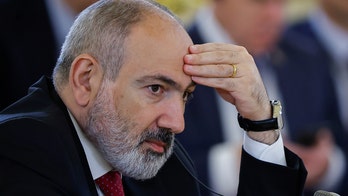Kosovo police have shut down six branches of a Serbia-licensed bank, escalating tensions between the two neighboring countries over the ban on the Serbian dinar currency. The move aligns with the government's decision to adopt the euro as the sole legal tender in Serb-populated areas of Kosovo, a policy that has drawn criticism from Serbia.

Kosovo police have closed six branches of a Serbia-licensed bank on Monday, following a government decision to prohibit the use of the Serbian dinar currency within the country. This move has exacerbated tensions between Kosovo and Serbia, which continues to reject Kosovo's independence declared in 2008.

The move comes after financial institutions raised concerns about the legitimacy of the Serbia-licensed bank branches, prompting an authorization from the prosecutor's office for their closure. The government had previously set a deadline of February 1 for areas dominated by the ethnic Serb minority in Kosovo to switch to the euro currency, but postponed the implementation for three months due to pressure from the European Union and the United States.
Most of Kosovo currently uses the euro, despite not being a member of the European Union. However, northern Kosovo, predominantly populated by ethnic Serbs, has continued to rely on the dinar. Many Serbs in the region receive financial support from the Serbian government, often delivered in cash using the dinar currency.
The decision to ban the dinar has sparked concerns among ethnic Serbs, who fear it could negatively impact their financial security and further isolate them from the rest of Kosovo. The European Union and the United States have urged both Kosovo and Serbia to implement agreements reached last year, including addressing the issue of the currency.
However, progress in EU-facilitated normalization talks has stalled, particularly after a shootout in September 2022 between masked Serb gunmen and Kosovo police that resulted in four deaths and increased tensions. Both Serbia and Kosovo have expressed their desire to join the EU, but the bloc's foreign policy chief, Josep Borrell, has warned that their unwillingness to compromise jeopardizes their chances.
The closure of the Serbia-licensed bank branches is seen as a further escalation in the ongoing dispute between Kosovo and Serbia. The historical tensions between the two countries stem from the 1998-99 war, when Serbian forces fought against ethnic Albanian separatists in the province of Kosovo. The conflict resulted in the deaths of approximately 13,000 people, predominantly ethnic Albanians, until a NATO bombing campaign forced the withdrawal of Serbian forces.










